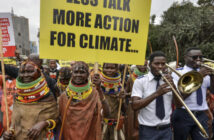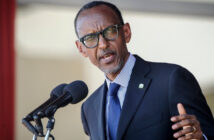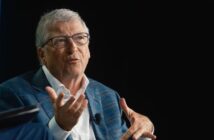Belgian police detained three people late Saturday in connection with the bloody terrorist attacks in neighbouring France, for which Daesh claimed responsibility.
The police detained a French national suspected of renting a car found near the scene of the attacks in Paris, while he was driving another car through the suburb of Molenbeek, Justice Minister Koen Geens told broadcaster RTBF. Two Belgian men with him were also arrested. The Frenchman was known to Belgian authorities who had been following his brother’s activities, Geens said.
Belgian Prime Minister Charles Michel told broadcaster RTL one of the men arrested in Molenbeek was thought to have been in Paris on Friday night, before telling another station RTBF later that this was still being verified.
Belgian police have launched their own investigation as at least three citizens were among those killed by the extremist.
Earlier, French prosecutor Francois Molins said a French citizen suspected of renting a car found near the scene was intercepted at the Belgian border control along with two other people. All three were resident in Belgium, he said.
Two suspect rented cars registered in Belgium were found near in Paris, several news reports said: a grey Seat and a grey Volkswagen Polo. It was not clear how closely the two reports of arrests were linked, and details on the suspects’ identities were not immediately available. French police on Saturday took into custody the father and brother of one of the Bataclan music venue attackers, identified as a 29-year-old French national, the AFP news agency reported.
The man was known to police for crimes and radicalization, but had never been jailed or implicated in terrorist networks, Molins said. He was identified thanks to a fingerprint from his severed finger, he added. The terrorist’s brother lived south of Paris, while the father lived about 100 kilometres farther east. The homes of both were searched.
The Paris attacks have so far left 129 people dead and another 352 injured 99 of them seriously, Molins told journalists in Paris. Eight attacks were launched over a timespan of about 30 minutes at the Stade de France national sports stadium, the Bataclan concert hall, and at several restaurants and bars.
Molins said there were three coordinated teams of terrorists, all armed with Kalashnikov rifles and explosive vests fitted with bolts meant to achieve “a maximum of victims.”
At three different locations, hundreds of empty cartridge cases were found after the attacks. French President Francois Hollande called it an “act of war.”
Seven extremists were killed during the attacks, with most of them blowing themselves up, Molins said, correcting earlier reports of eight dead assailants. Daesh said eight of its militants had targeted Paris.
Calling the city the capital of “prostitution and vice,” the terrorist group pointed to foreign warplanes “striking Muslims in the land of the caliphate.” France is part of a US-led coalition that is carrying out airstrikes against Daesh in Syria. The Bataclan attackers mentioned both Syria and Iraq during short negotiations held with them after they took hostages in the concert hall, Molins said.
A Syrian passport belonging to a person born in 1990 was found near the body of a suicide bomber who had targeted the Stade de France. Although investigators have not stated that the passport belonged to the suspect, authorities in Greece confirmed that the owner of passport arrived in Europe in October as a refugee.
The Blic newspaper in Belgrade on Sunday reported that Serbian authorities had records of the man named in the passport, identified as Ahmad Almohammad, 25, as passing from Greece into Serbia.The Vecernji List newspaper in Zagreb reported that he passed from Serbia into Croatia on October 8.
Hollande promised a fierce response. “France will be ruthless against the barbarians of Daesh,” he said. After US President Barack Obama consulted with security advisers Saturday, the White House said it “had no information to contradict the initial French assessment of (Daesh’s) responsibility.”
The government declared a state of emergency, tightened border controls and mobilized 1,500 soldiers. Paris residents were told stay home if possible, while large gatherings are prohibited until Thursday.
French authorities also announced the closure of many public facilities, while hospitals in the city have set emergency plans in action. Disneyland Paris was shut down until Wednesday and Paris’ iconic Eiffel Tower was also closed to the public. The Eurostar cross-Channel train service has offered to refund any customers with tickets from London to Paris.
International climate talks due to be held in Paris from November 30 will proceed as planned but “with reinforced security measures,” Foreign Minister Laurent Fabius said. Fabius said he has also ordered security to be reinforced at French diplomatic posts and institutions around the world



